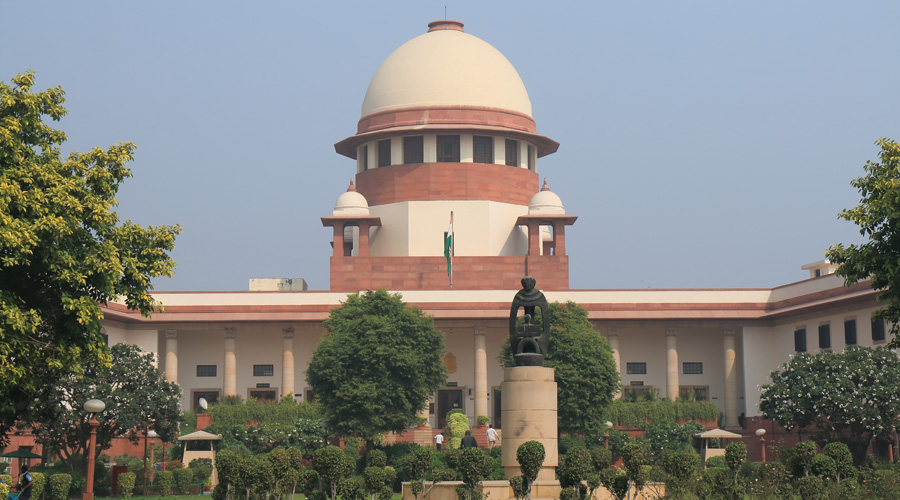The Supreme Court on Monday dismissed Trinamul Congress leader Gopal Seth’s plea seeking a directive to the Election Commission of India for physical verification of EVMs using 100 per cent VVPAT (Voter-Verified Paper Audit Trial) assistance during the ongoing Bengal Assembly polls.
A bench of Chief Justice S.A. Bobde, Justices A.S. Bopanna and V. Ramasubramanian dismissed the plea after noting that since polling had already taken place in some phases, it would not be appropriate to pass any directive at this juncture.
“Voting is over. We are not going to interfere in the middle of the election process…” the CJI told advocate Pijush Kanti Roy who appeared for Seth.
In response to a query from the bench, the counsel said the petitioner had made an earlier representation to the Election Commission on the issue.
He said while the Election Commission had appreciated his plea, it had not passed any directive and so, he was constrained to approach the Supreme Court for appropriate strictures.
“I am not seeking interference. The ECI has appreciated my request. Free and fair election is a right,” advocate Roy said, to which Justice Bobde replied: “ We agree with you on this, but we will not interfere.”
Later, the court dismissed the petition.
On May 7, 2019, 21 Opposition parties had suffered a major setback after the Supreme Court had dismissed their plea for subjecting 50
per cent of the polling booths in the remaining phase of the general election to VVPAT of the EVMs to ensure transparency.
At that time, the Opposition parties led by TDP’s N. Chandrababu Naidu, National Conference’s Farooq Abdullah and CPI leader D. Raja had cited various instances of malfunctioning of EVMs.
The Opposition had pleaded that “…after the passing of the impugned order (April 8), the first Phase of Polling for General Elections has taken place and number of EVMs and VVP Ats across the country have been found to be defective and faulty”.
“It · has been reported that in some cases where voters would vote for one party, EVM would record their vote having been cast for another party. In constituencies where EVMs or VVP ATs were found defective, polling had to be delayed and, in some cases, went on till wee hours of the the morning. Further, law and order problems were reported in many areas where supporters of political parties clashed against each other,” read their plea.
However, on February 24 last year, the Supreme Court had granted weeks to the Election Commission to file its reply to a joint PIL filed by NGOs — Association for Democratic Rights (ADR) and Common Cause — alleging large scale discrepancies in the final tally of votes declared by the Election Commission after the 2019 general election.
The petitioner had earlier alleged that as against the provisional lists announced by the poll body, so much so it was claimed that in six Lok Sabha constituencies, the discrepancies were more than the winning margin.
However, the matter did not come up for further hearing thereafter in view of the prevailing pandemic.
Elections to the 17th Lok Sabha were conducted in seven phases and covered 542 constituencies starting from April 11, 2019. The provisional results were announced on May 23, 2019. But the final tally of votes released by the EC in June indicated several discrepancies with the provisional votes declared on May 23.










